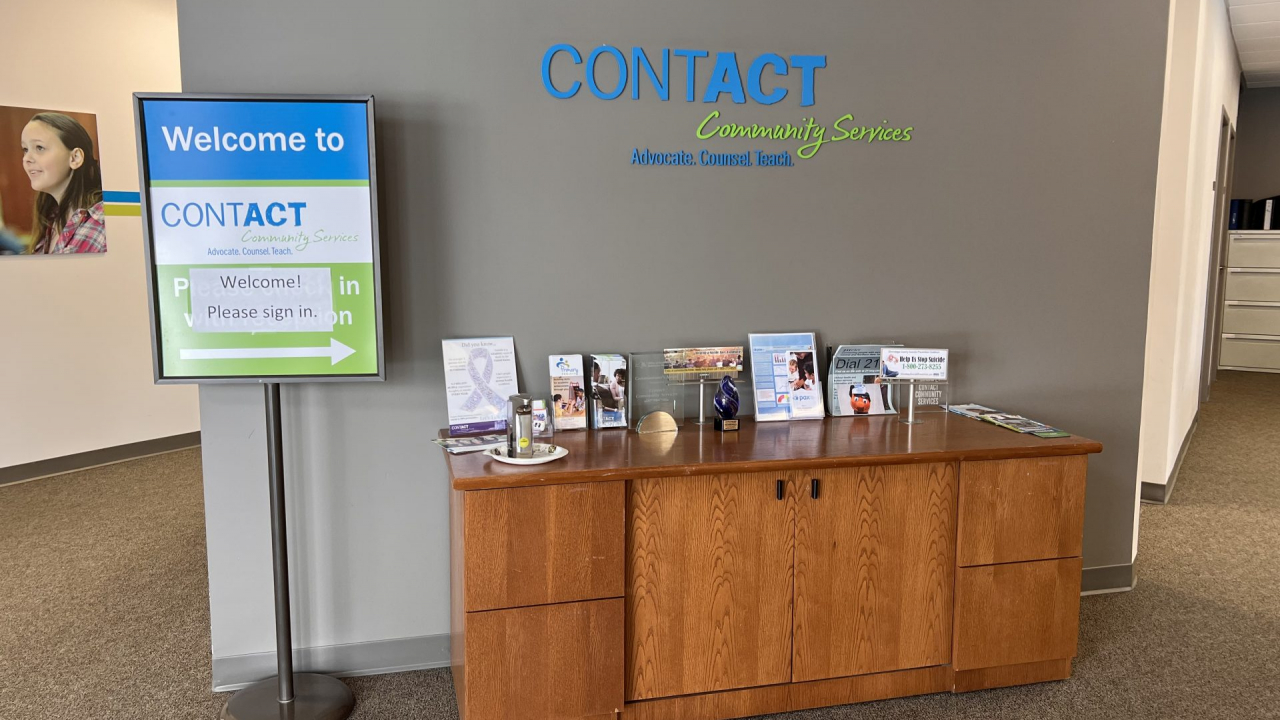
SYRACUSE, N.Y. (NCC News) – The National Suicide Prevention Lifeline is undergoing a long-awaited change. The 10-digit number will change to a three-digit lifeline by mid-July. 988 will make it easier and faster for people to get help.
Cheryl Giarusso, the Division Director for Crisis Services at Contact Community Services, sees the new lifeline as a necessary addition.
“We know that when we have an emergency, we dial 911. We know that when we need basic resources, we dial 211.” Giarusso said. “But we didn’t really have a great place for people to go with mental health concerns.”
Giarusso is anticipating an uptick in lifeline calls once the three-digit number is available.
“The 211 calls are basically the bulk of our business right now, but once that 988 switch flips then we think that that’s probably gonna increase by a good amount,” she said.
Contact Community Services, located in East Syracuse, is a human service agency with two main focuses. The crisis center works on suicide prevention, intervention, postvention and suicide prevention training, while the school services division focuses on suicide safety and prevention in local schools.
Giarusso said the crisis center responds to calls from all ages. She said that 1 in 20 adults in any two-week period experience thoughts of suicide.
“We get calls from people who are calling from the bathroom in the high school and are struggling and we walk with them and talk to them… we connect with them in a way that they know that we care…” Giarusso said. “We’ve got that demographic all the way up to the older folks so right across the line.”
Hannah Greene is a Student Assistance Counselor at Cicero North Syracuse High School and has firsthand seen high schoolers struggling with mental health. Greene said she sees parents and students in her district primarily struggling with substance use and abuse. She believes this comes as an impact of post-stress from the COVID-19 pandemic.
Greene emphasized the importance of having access to proper mental health resources. Unfortunately, a lack of resources could cost someone’s life.
Over the weekend, a 15-year-old boy from Fayetteville-Manlius High School died by suicide, and Greene pointed out that this high school, in particular, did not have any mental health staff available to students.
Greene said she still sees a stigma around mental health in many local schools getting in the way of children finding the help they need.
“I wish that that stigma could go away. I think that CNS does a pretty good job with it and the kids are pretty open about going to see their counselors and knowing that things are available here,” Greene said.
Greene encourages people to ask how others are feeling and allow them to open up or get the resources they need.
If you or a loved one is struggling with suicidal thoughts, call 1-800-273-TALK.




